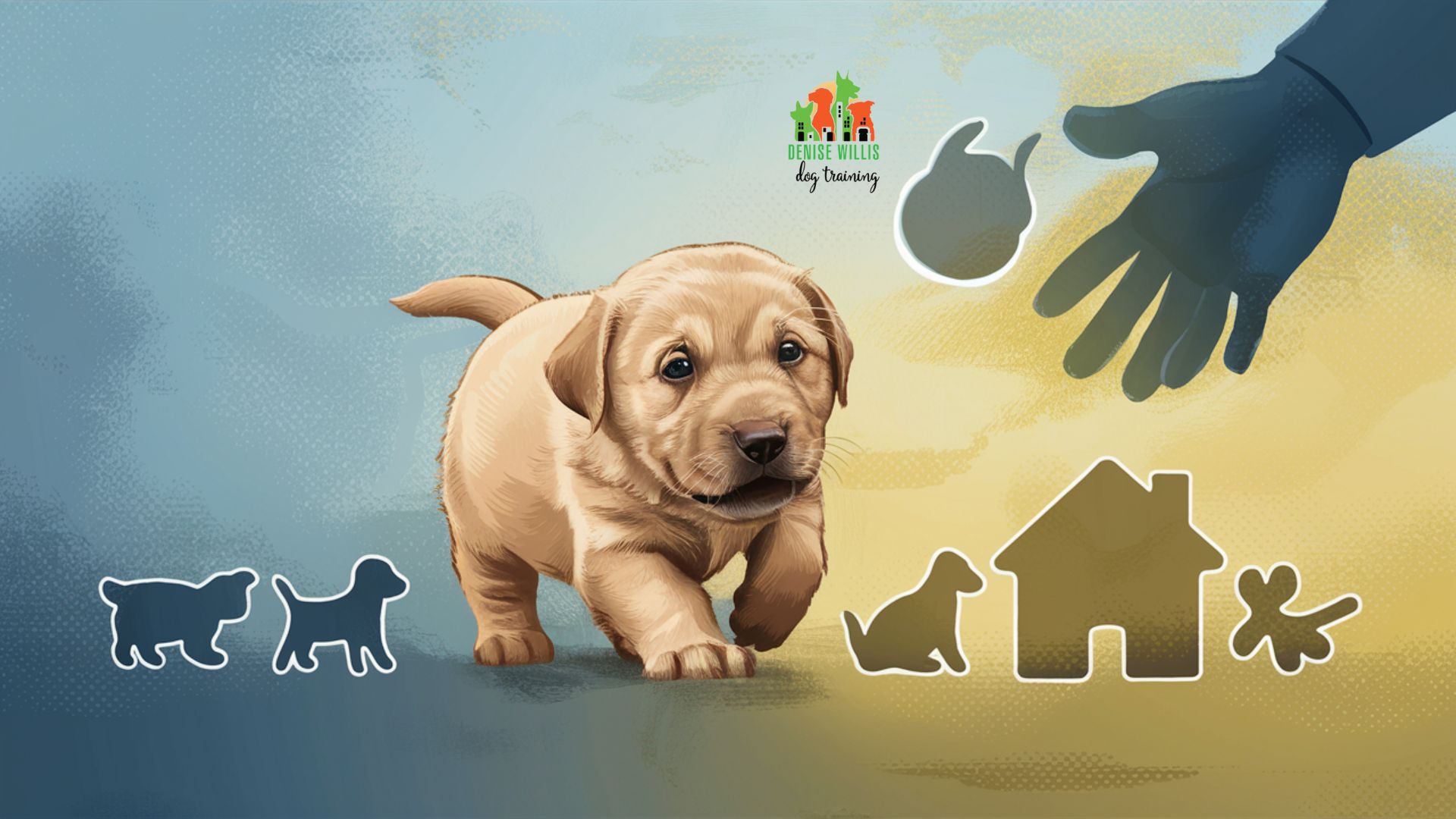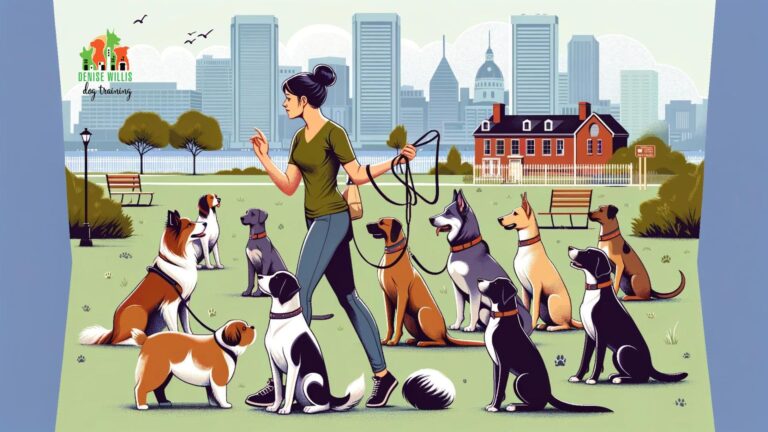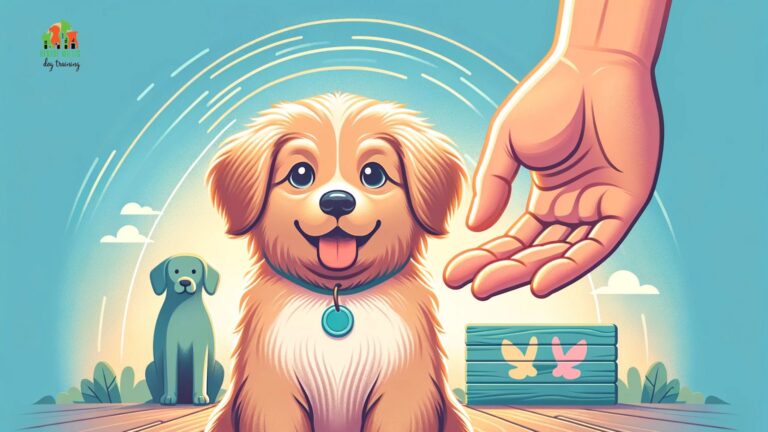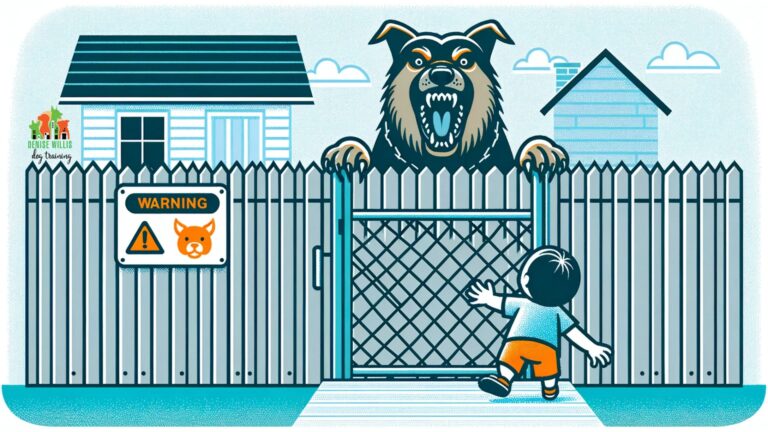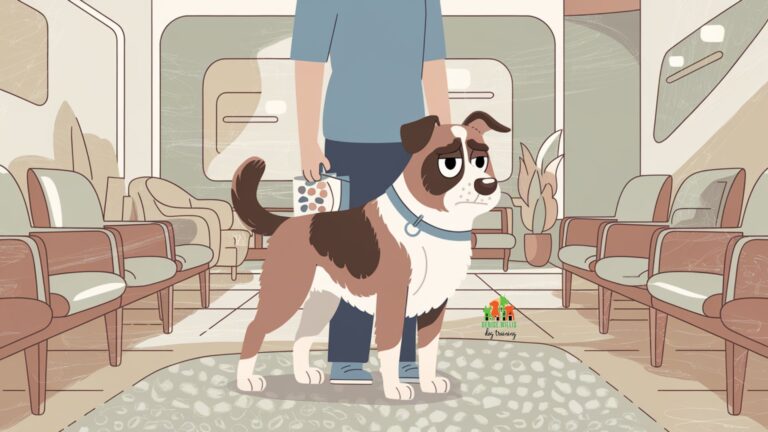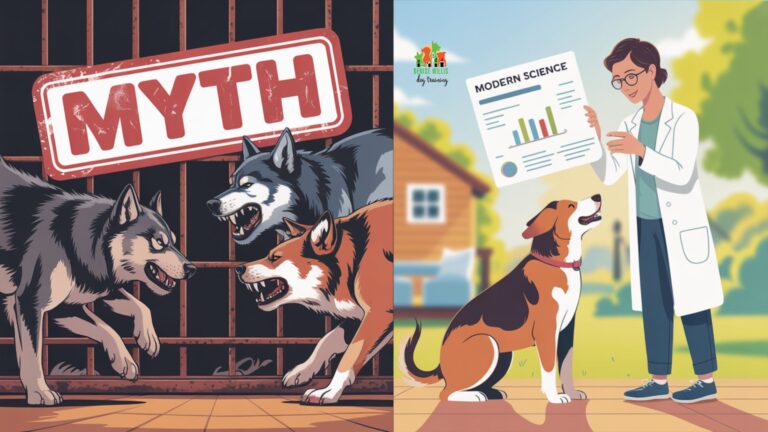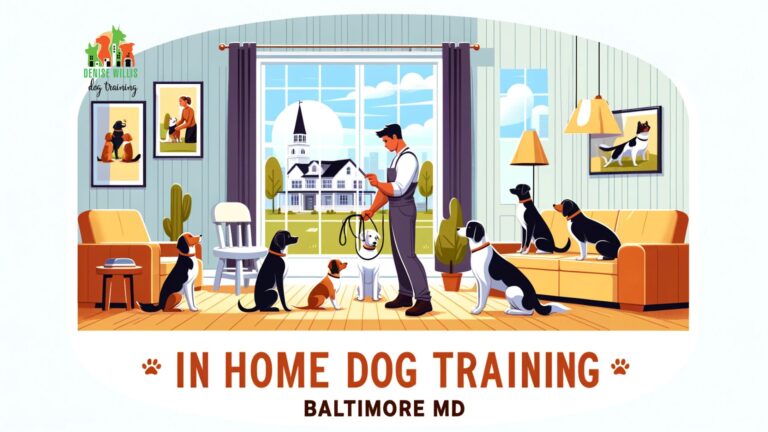10 Essential Tips for Socializing Your Puppy (And What NOT to Do!)
📍 Service Area Notice: DW Dog Training provides in-person training services exclusively in the Greater Baltimore area. While our blog content is designed to help dog owners internationally, our hands-on training services are locally focused. For readers outside our service area, we hope you find value in our articles and welcome you to reach out with questions!
Puppy socialization: Is your furry bundle of joy prepared for the big, wide world? If you’re scratching your head wondering how to turn your pup into a well-adjusted canine citizen, you’re in the right place. Socialization isn’t just about doggy playdates – it’s a crucial process that shapes your puppy’s future behavior and confidence.
Get it right, and you’ll have a four-legged friend who takes life’s challenges in stride. Mess it up, and you might be dealing with a neurotic Fido who thinks the mailman is out to get him.
Ready to set your pup up for success? Let’s dive into the world of puppy socialization – no fluff, just practical advice to help you raise a happy, confident dog.
Understanding Puppy Socialization
Puppy socialization is the process of exposing your young dog to a variety of people, animals, environments, and situations. It’s not just about making your pup-friendly – it’s about helping them develop the skills to navigate the human world with confidence. The critical socialization period for puppies occurs between 3-16 weeks of age. During this time, their brains are like sponges, soaking up experiences and forming lasting impressions.
Why is this period so important? Simple. A well-socialized puppy is less likely to develop behavioral problems like fear, aggression, or anxiety as an adult. They’re more adaptable, easier to train, and generally make better companions. On the flip side, a poorly socialized puppy might grow up to be fearful or aggressive, making life challenging for both the dog and its owner.
Key Aspects of Puppy Socialization
Start early: 3-16 weeks is crucial
Expose to various people and animals
Create positive experiences
Don’t force interactions
10 Essential Tips for Socializing Your Puppy
- Start Early, But Safely: Don’t wait until your pup has all their vaccinations to start socialization. While you need to be careful about exposure to diseases, you can begin the process at home right away. Introduce your puppy to different textures, sounds, and gentle handling. Just be smart about it – no dog parks or areas with unknown dogs until your vet gives the all-clear.
- Create Positive Experiences: Every new encounter should be a good one. Use treats, praise, and play to make new experiences enjoyable. If your pup seems overwhelmed, don’t force it. Back off and try again later. Remember, we’re aiming for quality over quantity here.
- Expose to Various Environments: Your puppy needs to learn that the world is full of different sights, sounds, and smells. Take them on short trips to different places – busy streets, quiet parks, your friend’s house. Let them explore at their own pace, always keeping an eye out for signs of stress.
- Introduce Different People: Puppies need to meet all sorts of humans – tall, short, young, old, people with beards, people wearing hats, people using crutches. The more variety, the better. Just make sure all interactions are positive and not overwhelming for your pup.
- Socialize with Other Animals: It’s not just about other dogs. If possible, introduce your puppy to cats, rabbits, horses – any animal they might encounter in their life. Always supervise these interactions closely and make sure all animals involved are safe and comfortable.
- Enroll in Puppy Classes: A well-run puppy class is worth its weight in gold. It provides a controlled environment for your pup to meet other dogs and people, learn basic obedience, and have positive experiences. Just make sure the class uses effective reinforcement methods.
- Practice Handling and Grooming: Get your puppy used to being touched all over – paws, ears, tail, mouth. This will make future vet visits and grooming sessions much easier. Make it a game, with lots of treats and praise.
- Expose to Different Sounds: Vacuum cleaners, thunderstorms, fireworks – these can all be scary for dogs. Start exposing your puppy to these sounds at a low volume, pairing them with treats or play. Gradually increase the volume over time.
- Teach Basic Obedience: A well-behaved puppy is a joy to have around, and more welcome in public spaces. Start with simple commands like ‘sit’, ‘stay’, and ‘come’. Keep training sessions short and fun.
- Continue Socialization into Adulthood: While the critical period ends around 16 weeks, socialization should be a lifelong process. Keep exposing your dog to new experiences throughout their life to maintain their confidence and adaptability.
Puppy Socialization Techniques Comparison
| Technique | Age Range | Difficulty | Effectiveness |
|---|---|---|---|
| Puppy Classes | 8-16 weeks | Easy | High |
| Puppy classes provide a controlled environment for socialization and basic training. They’re great for exposing puppies to other dogs and people in a safe setting. | |||
| Home Exposure | 3-16 weeks | Easy | Medium |
| Introducing puppies to various household items, sounds, and experiences at home. This is a safe way to start socialization before vaccinations are complete. | |||
| Controlled Playdates | 8-16 weeks | Medium | High |
| Arranging playdates with known, vaccinated dogs can help puppies learn social skills. Start with calm, friendly adult dogs before introducing puppy playmates. | |||
| Environmental Tours | 12-16 weeks | Medium | High |
| Taking puppies on short trips to various environments (parks, streets, etc.) exposes them to different sights, sounds, and smells. Always ensure the puppy feels safe and experiences are positive. | |||
What NOT to Do When Socializing Your Puppy
- Don’t Overwhelm Them: Throwing your puppy into the deep end isn’t socialization – it’s a recipe for fear and anxiety. Take it slow and let your pup set the pace.
- Don’t Force Interactions: If your puppy is showing signs of fear or stress, don’t force them to “face their fears”. This can create negative associations and make the problem worse.
- Don’t Rely on Dog Parks: While dog parks can be great for some dogs, they’re often too overwhelming for puppies. There’s too much uncontrolled interaction and potential for negative experiences.
- Don’t Neglect Ongoing Training: Socialization isn’t a one-and-done deal. It needs to be reinforced throughout your dog’s life.
- Don’t Forget About Health Precautions: While socialization is crucial, so is protecting your puppy from diseases. Follow your vet’s advice on safe socialization practices.
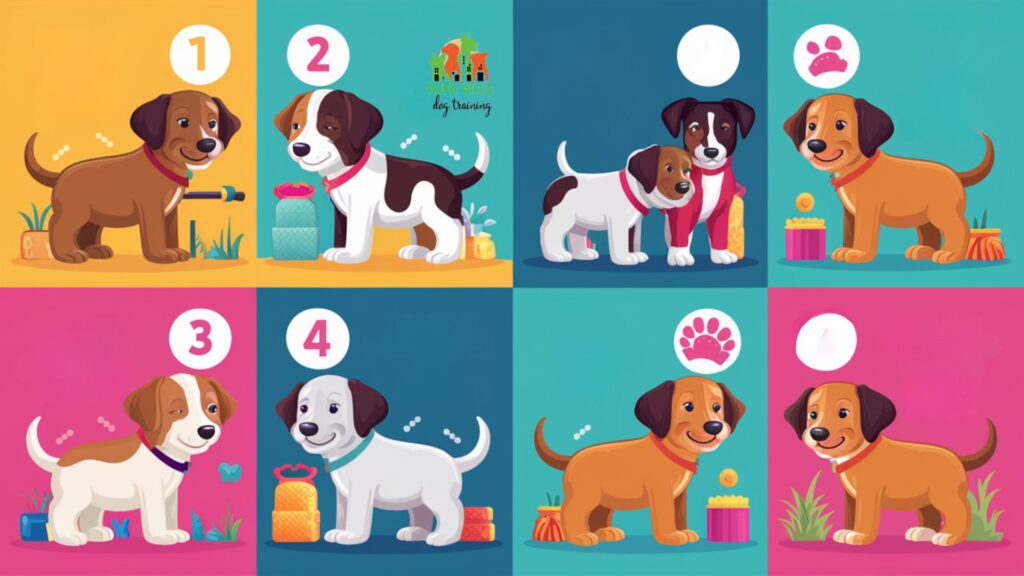
The Science Behind Puppy Socialization
Puppy socialization isn’t just some feel-good fluff – it’s backed by hard science. During the critical socialization period, a puppy’s brain is highly plastic. This means it’s particularly receptive to forming new neural connections. Positive experiences during this time create pathways in the brain that help the puppy respond calmly to similar situations in the future.
On the flip side, negative experiences or lack of exposure can lead to fear and anxiety. It’s like the brain is saying, “I don’t know what this is, so it must be dangerous!” This is why it’s so important to make socialization experiences positive and to expose puppies to a wide range of stimuli.
Socialization Timeline
0-3 weeks: Neonatal Period
- Puppies are entirely dependent on their mother
- They’re developing basic senses and motor skills
- Gentle handling by humans can help prepare them for future interactions
3-8 weeks: Primary Socialization Period
- Puppies start interacting more with their littermates and mother
- They learn crucial dog-to-dog social skills
- Introduce gentle human handling and basic environmental stimuli
- Start exposing them to different textures, sounds, and smells in a controlled setting
8-12 weeks: Secondary Socialization Period
- This is a critical time for human socialization
- Puppies are most receptive to new experiences during this period
- Introduce your puppy to a variety of people, places, and experiences
- Start basic training using positive reinforcement techniques
- Begin carefully controlled interactions with other puppies and adult dogs
12-16 weeks: Fear Impact Period
- Puppies may become more cautious of new experiences
- Continue socialization but be extra careful to keep all experiences positive
- Avoid traumatic or overly scary situations
- Focus on reinforcing positive experiences they’ve already had
4-6 months: Juvenile Period
- Continue socialization and training
- Start introducing more complex experiences and environments
- Begin leash training and basic obedience in various settings
- Reinforce positive interactions with people and other animals
6-18 months: Adolescence
- Reinforce socialization and training
- Be patient – your pup may test boundaries during this time
- Continue exposing your dog to new experiences
- Focus on impulse control and reinforcing good behaviors
Remember, every puppy is unique and may progress through these stages at slightly different rates. Always monitor your puppy’s comfort level and adjust your socialization efforts accordingly.
Puppy Socialization Timeline
0-3 weeks: Neonatal Period
Puppies are entirely dependent on their mother. They’re developing basic senses and motor skills. Gentle handling by humans can help prepare them for future interactions.
3-8 weeks: Primary Socialization Period
Puppies start interacting more with their littermates and mother. They learn crucial dog-to-dog social skills. Start exposing them to different textures, sounds, and smells in a controlled setting.
8-12 weeks: Secondary Socialization Period
This is a critical time for human socialization. Puppies are most receptive to new experiences during this period. Introduce your puppy to a variety of people, places, and experiences. Start basic training using positive reinforcement techniques.
12-16 weeks: Fear Impact Period
Puppies may become more cautious of new experiences. Continue socialization but be extra careful to keep all experiences positive. Avoid traumatic or overly scary situations. Focus on reinforcing positive experiences they’ve already had.
4-6 months: Juvenile Period
Continue socialization and training. Start introducing more complex experiences and environments. Begin leash training and basic obedience in various settings. Reinforce positive interactions with people and other animals.
6-18 months: Adolescence
Reinforce socialization and training. Be patient – your pup may test boundaries during this time. Continue exposing your dog to new experiences. Focus on impulse control and reinforcing good behaviors.
Overcoming Challenges in Puppy Socialization
Every puppy is unique, and you might face some challenges along the way. Here’s how to handle common issues:
- Fearful Puppy: If your puppy seems overly fearful, take a step back. Start with less intense experiences and gradually work up. Never force a frightened puppy into a situation – this will only reinforce their fear.
- Overly Excited Puppy: Some puppies get so excited they can’t focus. Work on calm behavior and impulse control. Reward your pup for calm interactions and teach them to settle on command.
- Lack of Exposure Opportunities: Living in a rural area or during a pandemic? Get creative. Set up obstacle courses in your home, play recordings of city sounds, or arrange one-on-one playdates with vaccinated dogs.
- Late Start: If you’ve adopted an older puppy or missed the critical socialization period, don’t panic. While early socialization is ideal, you can still make progress. Just take it slow and be patient.
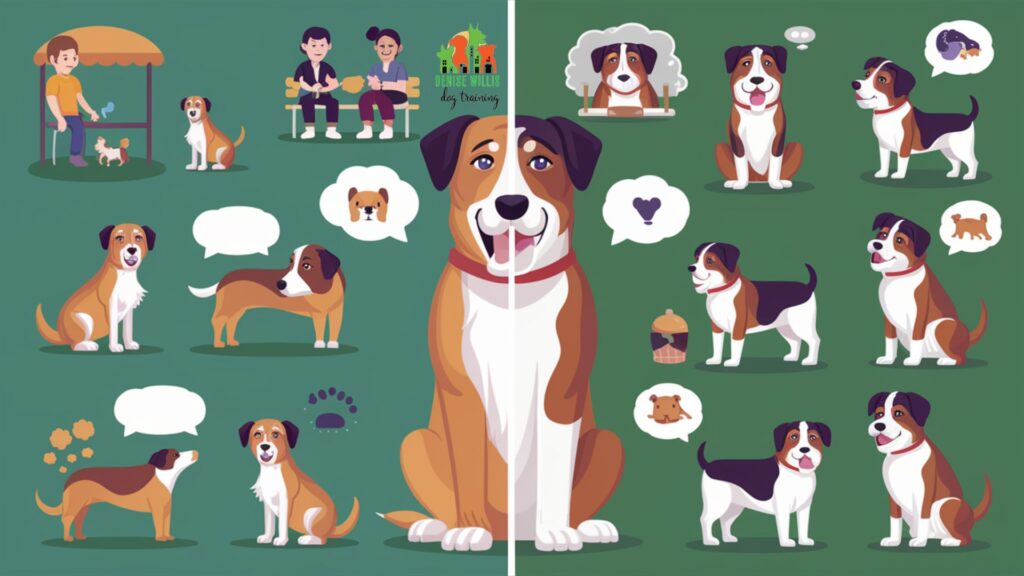
Frequently Asked Questions about Puppy Socialization
Q: When is the best time to start socializing my puppy? A: The critical socialization period is between 3-16 weeks of age. However, you can start gentle socialization as soon as you bring your puppy home, usually around 8 weeks. Just be sure to follow your vet’s advice about health precautions.
Q: How many new experiences should my puppy have each day? A: Quality is more important than quantity. Aim for 1-3 positive new experiences each day, but don’t overwhelm your puppy. Watch their body language and end the session if they seem stressed.
Q: Is it too late to socialize my adult dog? A: While the critical period ends around 16 weeks, it’s never too late to improve your dog’s social skills. Adult dogs may need more time and patience, but they can still learn to be more comfortable in various situations.
Q: Can I socialize my puppy before they’re fully vaccinated? A: Yes, but you need to be careful. Avoid high-traffic dog areas and stick to controlled environments. Puppy classes that require proof of vaccination are a good option. Always consult with your vet for safe socialization practices.
Q: How do I know if my puppy is stressed during socialization? A: Watch for signs like tucked tail, flattened ears, whale eye (showing the whites of their eyes), yawning, lip licking, or trying to hide or escape. If you see these signs, calmly remove your puppy from the situation and try again later with a less intense experience.
Essential Gear for Puppy Socialization
As you embark on your puppy socialization journey, certain products can make the process easier and more effective. Here are five top-rated items from Amazon that can support your efforts:
- Puppy Socialization Treat Pouch: This hands-free treat pouch allows you to quickly reward your puppy during socialization exercises. It’s essential for positive reinforcement training.
- Adjustable Puppy Harness and Leash Set: A comfortable, properly fitting harness and leash are crucial for safe exploration during socialization outings.
- Interactive Puppy Puzzle Toy: Mental stimulation is an important part of socialization. This toy helps develop problem-solving skills and can be used to create positive associations with new environments.
- Portable Water Bottle/Bowl: Stay hydrated during socialization adventures with this collapsible water bowl. It’s perfect for trips to the park or other outdoor excursions.
- Calming Aid for Puppies: For particularly anxious puppies, these natural calming treats can help ease stress during socialization experiences. Always consult with your vet before using any supplements.
Remember, while these products can be helpful tools, they’re not substitutes for consistent, patient training and positive experiences. Use them to enhance your socialization efforts, not replace them.
Key Takeaways
- Start early: Begin socialization between 3-16 weeks of age, but continue throughout your dog’s life.
- Create positive experiences: Use treats, praise, and play to make new encounters enjoyable.
- Variety is key: Expose your puppy to different people, animals, environments, and situations.
- Let your puppy set the pace: Never force interactions – if your pup seems overwhelmed, take a step back.
- Enroll in puppy classes: These provide structured socialization opportunities in a controlled environment.
- Balance socialization with health: Follow your vet’s advice on safe practices for unvaccinated puppies.
- Be patient and consistent: Socialization is an ongoing process that requires time and effort.
- Watch for stress signals: Learn to recognize when your puppy is uncomfortable and adjust accordingly.
- Don’t forget handling and grooming: These are important parts of socialization that prepare your pup for vet visits and grooming sessions.
- Invest in the future: Proper socialization can prevent behavioral problems down the road, making for a happier dog and owner.
Final Thoughts
Puppy socialization isn’t just another task on your new-dog to-do list – it’s a crucial investment in your pup’s future. By following these tips and avoiding common pitfalls, you’re setting your furry friend up for a lifetime of confidence and good behavior. Remember, every positive experience counts, so make the most of that critical socialization period.
But here’s the thing – socializing a puppy can be challenging. Maybe you’re struggling with a particularly fearful pup, or you’re not sure how to safely expose your dog to new experiences. That’s where professional help can make all the difference.
At DW Dog Training, we’ve been helping puppies become well-adjusted adult dogs for years. Our personalized approach takes into account your puppy’s unique personality and your specific lifestyle. Whether you need help with socialization, basic obedience, or addressing specific behavioral issues, we’re here to guide you every step of the way.
Now, I’d love to hear from you.
How has your puppy socialization journey been going? Have you faced any particular challenges? What techniques have worked best for you?
Share your experiences in the comments below – your insights could be incredibly helpful for other puppy parents out there.
And remember, if you’re feeling overwhelmed or unsure about how to socialize your puppy, don’t hesitate to reach out. You can contact DW Dog Training for personalized advice and support. Together, we can help your puppy grow into a confident, well-behaved adult dog.
Let’s keep the conversation going. Your experiences and questions not only help us improve our services but also create a supportive community for all puppy owners.
So, what’s been your biggest puppy socialization challenge?
Drop a comment below, and let’s tackle it together!
Further Reading
Puppy socialization is just the beginning of your journey with your new furry friend. To deepen your understanding and continue your dog training education, check out these related articles:
- 5 Proven Strategies to Stop Your Dog’s Aggression Towards Other Dogs: Learn how to nip aggression in the bud and promote positive interactions.
- Decoding Your Dog: 15 Body Language Signals You Need to Know: Understanding your dog’s non-verbal cues is crucial for effective socialization and training.
- 10 Proven Techniques to Tame Your Aggressive Puppy: Addressing aggression early can prevent serious behavioral issues down the line.
- Puppy Training Classes in Baltimore: Discover the benefits of professional puppy training classes in your area.
- Teach These 10 Commands First for a Happy, Healthy Dog Who Listens to You: Build on your socialization efforts with essential obedience training.
These resources cover a range of topics that complement your puppy socialization efforts, from understanding dog body language to addressing specific behavioral issues. Each article provides practical, actionable advice to help you raise a well-adjusted, obedient dog. Remember, socialization is just the first step in your lifelong journey with your canine companion. Continuous learning and training will ensure a harmonious relationship between you and your furry friend for years to come.

